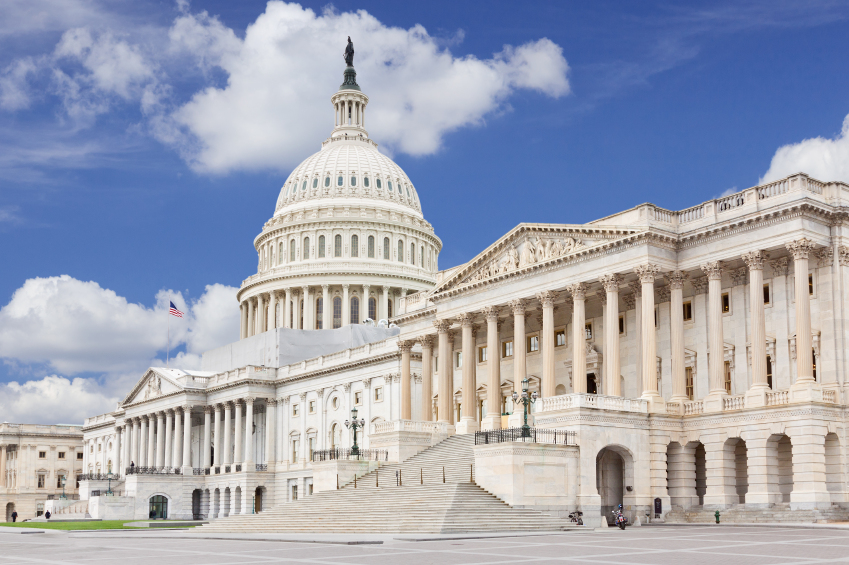Community Progress Shares Support for the “Neighborhood Homes Investment Act” (Press Release)
July 14, 2020

Proposed Legislation to Spur Revitalization by Closing the Real Estate Value Gap in Neighborhoods and generate more than $100 Billion in Community Development
WASHINGTON, D.C. – July 14, 2020 – Today, the Center for Community Progress, America’s leading resource on issues of vacant, abandoned, and deteriorated (VAD) properties, shared its continued support for the Neighborhood Homes Investment Act, which was introduced in the Senate by Senators Ben Cardin, (D-MD) and Rob Portman, (R-OH), and co-sponsored by Senators Chris Coons (D-DE), Sherrod Brown (D-OH), Todd Young (R-IN), and Tim Scott (R-SC).
NHIA (S. 4073) would encourage private investment in an estimated 500,000 homes that currently cannot be developed or rehabilitated because the costs to do so exceed the value of the home. The tax credit supports development of homes in rural communities struggling with the costs of new construction, as well as rehabilitation of homes in disinvested urban communities, where vacant homes depress property values and thwart broader revitalization efforts.
The House companion bill (HR 3316) was introduced last June by Representatives Brian Higgins (D-NY) and Mike Kelly (R-PA), and currently has 16 bipartisan co-sponsors.
“The fight to help American neighborhoods reach their full potential requires a diverse set of help. The Neighborhood Homes Investment Act will make possible what has for too long been economically impossible. This targeted approach to closing the value gap in struggling markets has the power to heal neighborhoods that have been paralyzed by vacancy and disinvestment. We look forward to seeing the rich impact public and private partnerships will have on improving health and rebuilding communities,” said Dr. Akilah Watkins-Butler, President and CEO of the Center for Community Progress.
“We would like to thank this bipartisan group of Senators, led by Senators Cardin and Portman, for their work to champion progress in communities across the nation.”
Community Progress is a member of the Neighborhood Homes Coalition, a group of 22 nonprofit and housing industry leaders that includes Habitat for Humanity, the Mortgage Bankers Association, LISC, and the National Community Stabilization Trust.
America’s Housing Value Gap Challenge
Hundreds of American communities face the neighborhood revitalization hurdle commonly known as the “value gap” — the difference between the cost of acquiring and rehabilitating or building a home and the home’s post-rehab/post-construction value.
While the Low-Income Housing Tax Credit (LIHTC) has helped close the multi-family development gaps in many low-income areas, when it comes to single-family housing, there is no reliable reinvestment tool to close the value gap.
Consequently, for the country’s declining 1-4 family housing stock, the difference between improvement costs and market value contribute to urban prosperity problems including
- Vacancy, abandonment, and deterioration – In markets where the costs to build or rehab a house outweigh sale prices – without financing help, owners will walk away from homes that are no longer habitable and can’t be refinanced or sold.
- Growth in absentee landlord neighborhoods – Poorly-maintained rental housing, owned by absentee landlord/investors unwilling to take a loss on improving housing quality, negatively impacts quality of life and spurs property decline.
- Racial inequity – The gap in capital for reinvestment in low- and moderate-income neighborhoods has exacerbated racial inequities, in particular, the great disparity between African American family wealth and the family wealth of every other ethnic and racial group in America.
About the Legislation
NHIA would revitalize distressed urban, suburban, and rural neighborhoods with federal income tax credits, mobilizing private investment to build and rehabilitate 500,000 homes for moderate- and middle-income homeowners over the next decade. In addition to the 500,000 homes that would be rehabbed and $100 billion in development activity, estimated impacts of this legislation include:
- 785,714 jobs in construction and construction-related industries
- $42.9 billion in wages and salaries
- $29.3 billion in federal, state, and local tax revenues and fees
The bill will target communities in greatest need by leveraging the success of proven tools (e.g. LIHTC and New Markets Tax Credit), state control, and limits on homeowner incomes, eligible costs and home prices.
For more information on Neighborhood Homes Investment Act, visit neighborhoodhomesinvestmentact.org.
For media interviews and more information about the Center for Community Progress, email [email protected] or call (877) 542-4842 ext. 153.
###
About the Center for Community Progress
Since 2010, the Center for Community Progress has helped more than 300 communities transform vacant, abandoned, and deteriorated (VAD) properties into assets for neighbors and neighborhoods. Through offices in Michigan and Washington, D.C., Community Progress works to create a future where all people live in strong, healthy, just communities where widespread vacant properties no longer exist. For more information, visit communityprogress.org.
Recent Press Releases
Subscribe to join 14,000 community development leaders getting the latest resources from top experts on vacant property revitalization.
